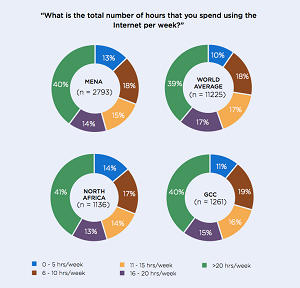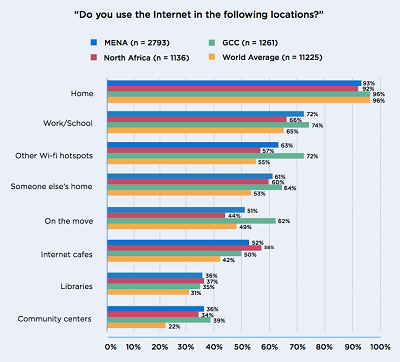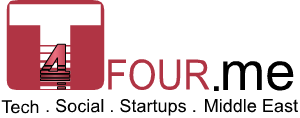The Ministry of Information and Communications Technology (ictQATAR) has launched the key findings of a major new study  into the attitudes and behaviors of Internet users in the Middle East and North Africa (MENA).
into the attitudes and behaviors of Internet users in the Middle East and North Africa (MENA).
The research, which is believed to be the first of its kind in the region, was launched by the Ministry at QITCOM – Qatar’s largest ICT conference which is taking place at the Qatar National Convention Center (QNCC) between May 26-28.
Covering 14 Middle East countries, the report explores the attitudes and behaviors of Internet users in MENA towards important ICT-related issues such as cyber safety, online security and data privacy.
The conclusions were compiled using an online survey of 2,793 Internet users in the region; which were then bench-marked against an existing data set produced by the World Economic Forum – of 8,432 respondents from 44 other countries across the globe.
The following are the ten key findings of the report:
- The majority of Internet users in MENA access the web from home.
- They are considerably less likely to make online purchases or do online banking compared to other regions.

- MENA Internet users are considerably more likely to agree with the statement that “the Internet is making things better for people like me” – when compared to the world average.
- They are also more supportive of the idea that Government authorities should block harmful online content than users elsewhere in the world.
- When compared to the world average, MENA Internet users show similar levels of concern about their online communications being monitored. Nonetheless, a sizeable number are also quite relaxed about this issue.
- Internet users in North Africa are much more inclined to believe that their personal data is safe online compared to other Internet users in both the Gulf Cooperation Council (GCC) and globally.
- Amongst different online players; banks and financial institutions in the region enjoy the highest levels of trust, followed by health and medical service providers and Government authorities.
- Nearly 50% of MENA’s Internet users say they are “very careful” about what they say and do on the Internet.
- Despite this, they are among the most likely to open attachments, documents and emails from senders they do not know; and amongst the least likely to scan their computer or mobile device for viruses and spyware.
- They are also amongst the most likely to meet people online that they have not met in person, and are more likely to accept to be “friends” with someone online – or to make “connections” with people they do not personally know – than users in any other region.
The full report is available for download on: http://www.ictqatar.qa/en/rassed/major-studies


Trackbacks/Pingbacks
[…] below infographic has been provided by The Ministry of Information and Communications Technology (ICT Qatar) as a follow up to the previously issued its Q2/2014 Oct market intelligence reports which […]